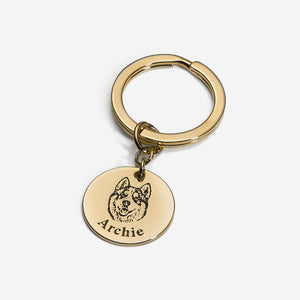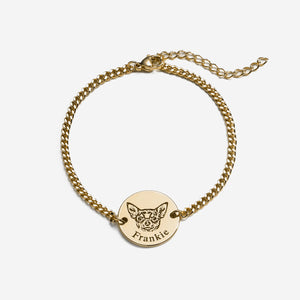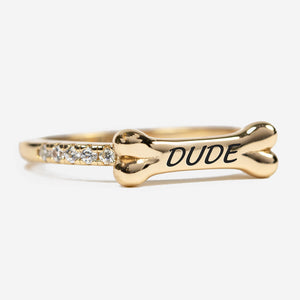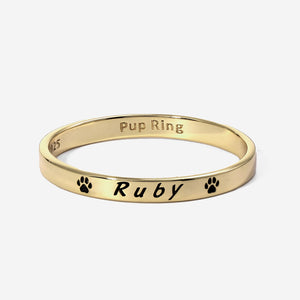Most people adopt a puppy because they just can’t resist that cute, perfect little face. A puppy is desirable just because of that amazing, squishy, loving little bean that triggers some kind of parental instinct on us. A puppy just makes us happy!!
If you recently adopted a puppy, guess what… you have a clean slate to raise one of the best dogs you have ever known! It’s a bigger responsibility than feeding and walking your tiny companion. It’s your job to raise them in a healthy environment, of course meeting all its physical needs, but your pup will need proper training, socialization, and this time is key for shaping the way your pup will interact with the world for its whole life.
By the way, if you’re still on the search for your perfect pup, you can check out our blog post on choosing the right pup to help you make the best choice when finding the perfect fit for your family!
Having the right knowledge and coming up with a plan will ensure you can successfully raise the perfect pup!
You should have a detailed plan in place to cover all your basic bases before you adopt your pup. It’s never too late to bring more structure and wellness to a dog’s life, but the earlier you make a plan, the more you set yourself and your pup up for success.
1. Invest In Your Pup

This part might not be the most fun, but making sure that all your expenses are planned out and you have all the physical tools you need to raise your pup properly means you don’t waste precious time and frustration lantern so you’ll be free to focus on your pup instead of the things you need to get. Of course you’ll need things like a collar, leash, food (and your very own PupRing!)
Search for a vet that fits your needs. Find a vet that will care for your pup as much as you do, and that provides the appropriate amount of medical care for any problems you may face. I know for me, finances used to be a struggle in many areas, including my dog's health. Even when that is the case, it’s really worth putting the funds in up front to ensure your dog’s long-term health. If you’re struggling to even afford things like vaccines for your pup, I’d also recommend doing some extra searching around online for a good country vet. Finding the right small veterinarians near small towns, in my experience, often meant they charged less and were just as capable and caring as the pretty, shiny office in a big town, if not even more so. Just do your research, and get recommendations from good pet owners you already know to make sure you can be confident in your pup’s health professional. (Word of mouth recommendations are also awesome for trainers too!)
Find an emergency vet ahead of time- Heaven forbid and emergency happen, but if it does, you want to be prepared. You should research emergency vets in your area ahead of time so that, in a moment of need, you know where your pup will get the best care in the wee hours of the night. Prices can differ between practices, so you may also find that looking ahead of time will help you find a vet that is more affordable.
Invest in your dog’s health upfront- Getting your dog vaccinated can prevent serious diseases that can be detrimental to your dog's health. Spay or neuter your dog if it's the right choice for you- doing this can provide a plethora of health and even behavioral advantages, so I strongly recommend it. And if your dog seems off, get them checked out. I actually just took my dog Cookie to the vet today for his vaccinations, and we addressed a couple of other issues- I noticed a couple of things were off with him recently and took on the extra time and expenses of getting tests done just to make sure he was healthy, instead of waiting for an emergency later. He’d been shaking his head a lot more than usual and I noticed one of his ears had some flaky skin in it. I assumed it was just the dry air irritating his skin, but wanted to be sure, so we got an ear wax sample and sure enough he had an ongoing bacterial infection. The vet gave me some ointment for it and told me, if I hadn’t had it looked at, it most likely would have gotten much worse over time.
2. Make A Schedule

Your dog will crave having structure in its life, and the more routines you can establish, the better. It can also add a few more tidbits of structure to your own life too! Thinking through every part of your pup’s day ahead of time will also help you make sure you don’t miss anything important when it comes to their care.
Plan around your dog's needs- When you make your schedule, you should look into specific facts about things like how often your dog should go out, how much they are supposed to eat, and how long it is appropriate to leave your dog alone for. Get an idea of how much supervision your dog will need and if you need a dogsitter, doggy daycare, or dog walker. This planning time will help you set realistic expectations when it comes to how much care your dog needs and when. Having this knowledge will also help you set your pup up for success!
Choose specific times for daily events- This will help keep you from rushing through tasks that you might be inclined to get impatient about, like walks. If you just say “I’ll take the dog out before I leave for work”, you might just remember right before you walk out the door. Then you wind up rushing so fast your dog doesn’t do its business, and you come home to an accident on the floor. But if you always take your pup out 15 minutes before you go to work, you’re more likely to give your dog the full time it needs and deserves.
Tie tasks together- Think about what times you’ll feed your dog- I actually feed my dog at the same time I take my daily medications. Then if I do one, I remember to do the other! This has been really important for me personally because I can be really forgetful. Even if I have an alarm set, I will sometimes be busy, turn it off out of instinct, and my pets (well really my loud whiny cat Tux) will remind me if I don’t get up and do it right away. You can actually use this trick to tie together 2 separate but important tasks, and the nice thing about having a pup is that they will make sure you don’t forget either one!
3. Set Up Your Home For Success

Puppy Proofing- Make sure you take the time to puppy proof your home! The goal is to make your space as safe and inviting as possible for your dog. Think about how big your dog will be and everything that might be in reach- that means food on the counter, cleaning supplies in your cabinet that doesn’t shut quite right, and yummy-looking objects that might be mistaken for chew toys. Close the toilet lid or just shut the bathroom door to prevent your pup from indulging in that giant water bowl, and some curious pups might even be tempted to string toilet paper through the house! Think about weird places your pup might climb or squeeze into. When it comes to making your home a safe place, keep in mind that puppy is just a toddler without thumbs!
Potty training- We actually just wrote a guide all about potty training here last week! The basic gist of it is that you should give your pup as many opportunities as you can to do their business. Praise them when they do a good job, clean up any accidents that happen with a special cleaner or 1:1 mix of vinegar of water, and do your own research if you want to try something like a puppy pad (I have no experience with any kind of potty-training products, just traditional teaching methods). You can keep your pup in a crate for short periods of time while you’re potty training to help prevent accidents in the house. Of course we all gotta go, so be generous when it comes to the frequency of breaks. Finally, don’t punish your dog for accidents, because you’re more likely to confuse them and stress them out, and this can even make accidents more likely in the future.
Healthy separation and crate training- It’s important to teach your pup to be alone as early on as possible. This is actually the biggest mistake I made with my dog Cookie, and to this day it’s very difficult to keep him alone for more than a few minutes. In my case it’s severe enough that my next step is to get help from a professional dog trainer or behavioural specialist. In your case though, you can check out our blog post on separation anxiety and teaching your pup how to be calm and happy when they’re alone.
In general, just get your dog used to being alone. If you baby your pup forever, they’ll never know how to be alone and it can be really scary or even dangerous for them. They might do things like chip their teeth on a kennel, cry, or have a full on meltdown. It can be really hard to establish boundaries with your pup, but it’s for the best. This little bit of tough love will save you (and your pup!) a lot of heartache and frustration down the road. Crate training can be really effective and you can teach your dog to love their crate if you do it right from the start!
4. Don't Underestimate Proper Socialization

Socialization is one of the easiest things to forget about when it comes to your pup’s well-being, but is arguably one of the most important things you can do to wind up with a well-rounded dog. Proper socialization early on in your dog’s life will help them learn their native language, grow from new experiences, and increase their confidence tenfold while teaching them all the appropriate behaviors and promoting healthy exploration.
Balancing Your Relationship - You need to first consider how to have the most appropriate relationship with your dog. It’s not as easy as being the dominant over your pup, or just showering them with constant love and affection. You need to develop appropriate boundaries with your pup. Teach them the rules and stay consistent- your dog craves structure and consistency! Promote a healthy relationship with your pup with a proper balance- rewarding good behaviors, playing together, but also practice being in a different room from your pup.
Meeting other dogs- Your dog has their own language, but like humans, they aren’t born knowing how to talk. Exposing your dog to new friends and giving them plenty of play-dates will give them the opportunity to learn the “language” of a dog, which is all about body language. This is really important so your dog knows how to act appropriately around others, and if your dog is fluent in its own body language it can really help you learn to understand and communicate with your pup on a whole new level!
New experiences- Expose your pup to as many new things as possible! New experiences and environments are amazing for your dog for so many reasons- every experience is a learning opportunity. New experiences and places are a great way to stimulate your dog’s brain and keep them thinking. It can also build up your dog’s confidence which is important for promoting their health, teaching them to explore and think on their own, and will also help them during times that they need to be alone. Some new experiences you could try are things like going on walks to new places, bringing your dog on trips to pet-friendly stores and outdoor cafes, and even traveling together.
Basic obedience training- I highly, highly recommend taking puppy training classes! Taking your dog to a group puppy training course encompasses all the important socialization categories above and even more. Training is about learning how to teach your dog in an active practice with a professional and is the fastest way to jumpstart a proper relationship with your dog and give them a leg up in life. A good dog trainer is also a fantastic knowledge resource for any questions you might have about your pup. They’re there because they love working with dogs and will be happy to tell you everything they know, and recommend resources for you such as reading, good groomers, or even things like their preferred dog food. Training in a group is also a great way to expose your pup to other dogs and for you to meet other dog owners. You can also choose to take more advanced training courses with your dog, such as getting a CGC (canine good citizen) certificate, which helps you know your dog is ready to take on the world, or even training your dog to be a therapy dog to be ready to help groups in need when things return to normal, such as helping children learning to read, or greeting older folks in nursing homes where interacting with a lovely, gentle, properly trained pup can be the highlight of their week.
What’s your favorite part of owning a new puppy?
Is it that new puppy smell? Having a blank slate of learning opportunities? Maybe the precious snuggles? Let us know! I hope this helped you learn how to improve your pup’s life, and I look forward to writing for you again next week!








